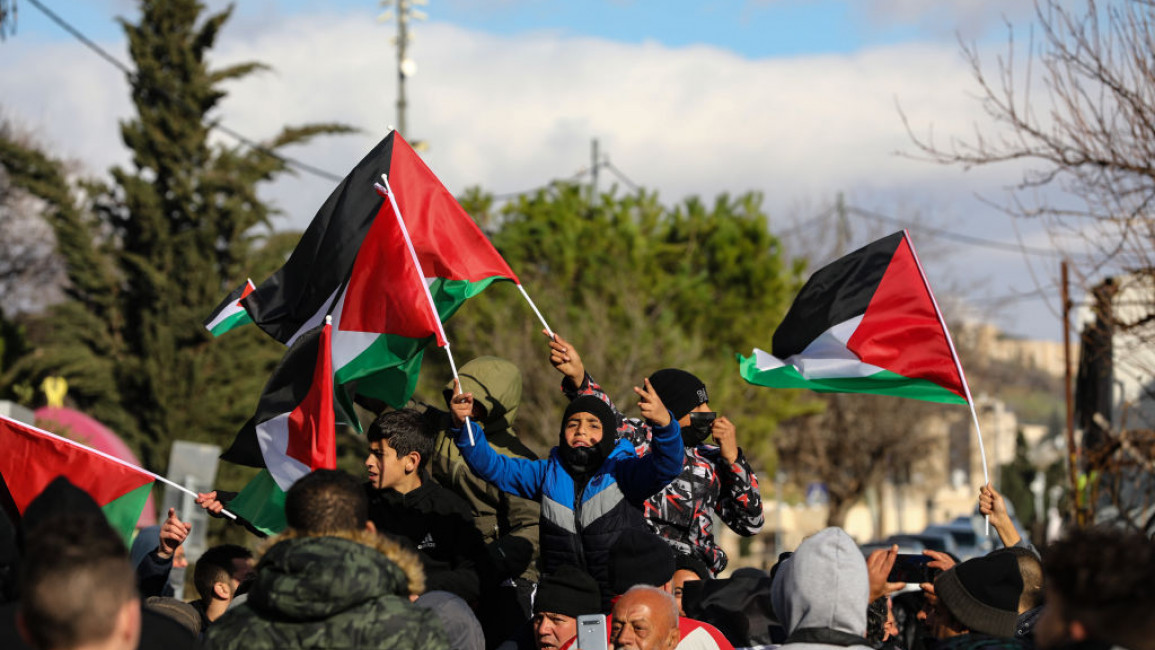Israel conditionally freezes displacement of Palestinian families in Jerusalem's Sheikh Jarrah
Activists in Jerusalem are celebrating the Israeli Supreme Court's decision on Tuesday to conditionally freeze the forced displacement of four Palestinian families in the occupied East Jerusalem neighbourhood of Sheikh Jarrah.
Justice Isaac Amit, in a ruling by a three-judge panel, wrote the families would be recognised as "protected tenants".
However, they would still have to pay a Jewish settler group a symbolic annual rent of 2,400 shekels (about $740) until "title and settlement procedures are complete", which can take up months or even years.
The local Jaouni, Al-Qasim, El-Kurd and Iskafi families can appeal the above decision.
Sami Irshid, a lawyer representing the Palestinian families, told AFP the decision was "significant".
The move was welcomed by prominent activist and writer Mohammed El-Kurd, who called it "good news".
However, the Sheikh Jarrah Neighbourhood Units said in a statement shared by El-Kurd that "the battle to solidify our rights" had begun.
The Neighbourhood Units said that they will "never receive justice from Israeli Occupation courts," but can count on global movements that have "lead to the court cancelling their imminent expulsion".
El-Kurd also emphasised that the fight will not be officially over until all Palestinian families can live without fear of displacement.
Some good news. #SaveSheikhJarrah pic.twitter.com/1frYJfiiO4
— Mohammed El-Kurd (@m7mdkurd) March 2, 2022
Israel annexed East Jerusalem - which Palestinians claim as the capital of their future state - following the 1967 Six-Day War, in a move not recognised by most of the international community.
Tuesday's decision was part of a years-long legal battle waged by the families, resisting efforts by settlers to take over properties in East Jerusalem which they claim were owned by Jews prior to Israel's creation in 1948.
Sheikh Jarrah has been at the centre of tensions in Jerusalem since last year, with some 28 Palestinian families in the neighbourhood facing orders of expulsion from their homes.
In August, the families refused a "compromise" proposed by Israel's top court, in which they would be recognised as protected tenants in exchange for recognising Israeli ownership of their homes.


![President Pezeshkian has denounced Israel's attacks on Lebanon [Getty]](/sites/default/files/styles/image_684x385/public/2173482924.jpeg?h=a5f2f23a&itok=q3evVtko)



 Follow the Middle East's top stories in English at The New Arab on Google News
Follow the Middle East's top stories in English at The New Arab on Google News


